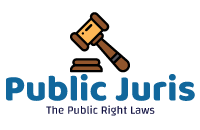
Real Estate Lawsuit Settlements: A Comprehensive Guide
Explore a comprehensive guide to real estate lawsuit settlements. Learn about the intricacies, procedures, and FAQs surrounding these settlements. Get expert insights and valuable information to navigate real estate legal matters effectively.
Real estate transactions can sometimes lead to disputes, requiring legal intervention to resolve conflicts. Real estate lawsuit settlements play a crucial role in ensuring fair resolutions for parties involved in such disputes. In this detailed guide, we’ll delve into the realm of real estate lawsuit settlements, providing valuable insights, expert opinions, and answers to frequently asked questions.
Real Estate Lawsuit Settlements: What You Need to Know
Navigating legal matters in the real estate world can be complex. It’s important to have a clear understanding of real estate lawsuit settlements to safeguard your interests.
Understanding Real Estate Lawsuit Settlements
Real estate lawsuit settlements refer to the process of resolving legal disputes related to real property. These disputes can involve issues like property ownership, boundary disputes, breach of contract, non-disclosure of defects, and more. Settlements are often preferred over prolonged litigation as they offer a quicker and more cost-effective solution.
The Process of Real Estate Lawsuit Settlements
- Legal Consultation: When a dispute arises, parties involved consult with legal experts to assess the situation and determine the best course of action.
- Mediation and Negotiation: Parties attempt to reach a settlement through mediation and negotiation, aiming to find common ground and avoid going to court.
- Drafting Settlement Agreement: Once an agreement is reached, a formal settlement agreement is drafted, outlining the terms and conditions of the resolution.
- Approval and Implementation: Parties review and sign the settlement agreement. After approval from all parties, the terms are implemented.
The Benefits of Settlements
- Time and Cost-Effective: Settling disputes out of court saves time and money compared to lengthy litigation processes.
- Maintaining Relationships: Settlements can help maintain relationships between parties, which is particularly important in real estate where ongoing interactions might be necessary.
- Privacy and Confidentiality: Settlements offer more privacy compared to court proceedings, as they are not part of the public record.
Key Steps to Successful Real Estate Lawsuit Settlements
Navigating a real estate lawsuit settlement effectively requires careful consideration of various aspects. Here are key steps to ensure a successful resolution:
1. Hire Competent Legal Representation
Enlist the services of experienced real estate attorneys specializing in settlements. Their expertise will prove invaluable in negotiating favorable terms.
2. Gather Strong Evidence
Compile evidence that supports your stance in the dispute. This can include contracts, documents, photographs, and expert opinions.
3. Explore Mediation Options
Mediation allows parties to communicate openly and find middle ground. A skilled mediator can help bridge gaps and facilitate productive discussions.
4. Define Clear Terms
Ensure that the settlement agreement clearly defines the terms and conditions, leaving no room for ambiguity or misunderstandings.
5. Consider Tax Implications
Understand the potential tax implications of the settlement, as some agreements may have tax consequences.
Frequently Asked Questions about Real Estate Lawsuit Settlements
Can a real estate lawsuit be settled without going to court?
Yes, many real estate lawsuits can be settled through negotiation and mediation without going to court. Settlements offer a more efficient and less costly alternative.
Is hiring an attorney necessary for a real estate settlement?
While not mandatory, having a skilled attorney by your side can greatly enhance your chances of achieving a favorable settlement outcome.
What happens if one party breaches the settlement agreement?
If one party breaches the settlement agreement, the other party may take legal action to enforce the terms of the agreement.
How long does a typical real estate settlement process take?
The duration of a real estate settlement process varies widely depending on the complexity of the case and the willingness of parties to negotiate. It can take anywhere from a few weeks to several months.
Can settlement terms be modified after they are finalized?
Modifying settlement terms after finalization is challenging and typically requires the consent of all parties involved.
Are settlement agreements confidential?
Yes, settlement agreements are often confidential, offering a level of privacy that court proceedings do not provide.
Conclusion
Real estate lawsuit settlements are a crucial aspect of resolving disputes in the real estate industry. By understanding the process, benefits, and key steps involved, you can navigate these settlements effectively. Remember to seek legal counsel, gather strong evidence, and explore mediation options to achieve a successful resolution. Whether you’re a buyer, seller, or investor, having knowledge of real estate lawsuit settlements empowers you to protect your interests and achieve a fair outcome.

